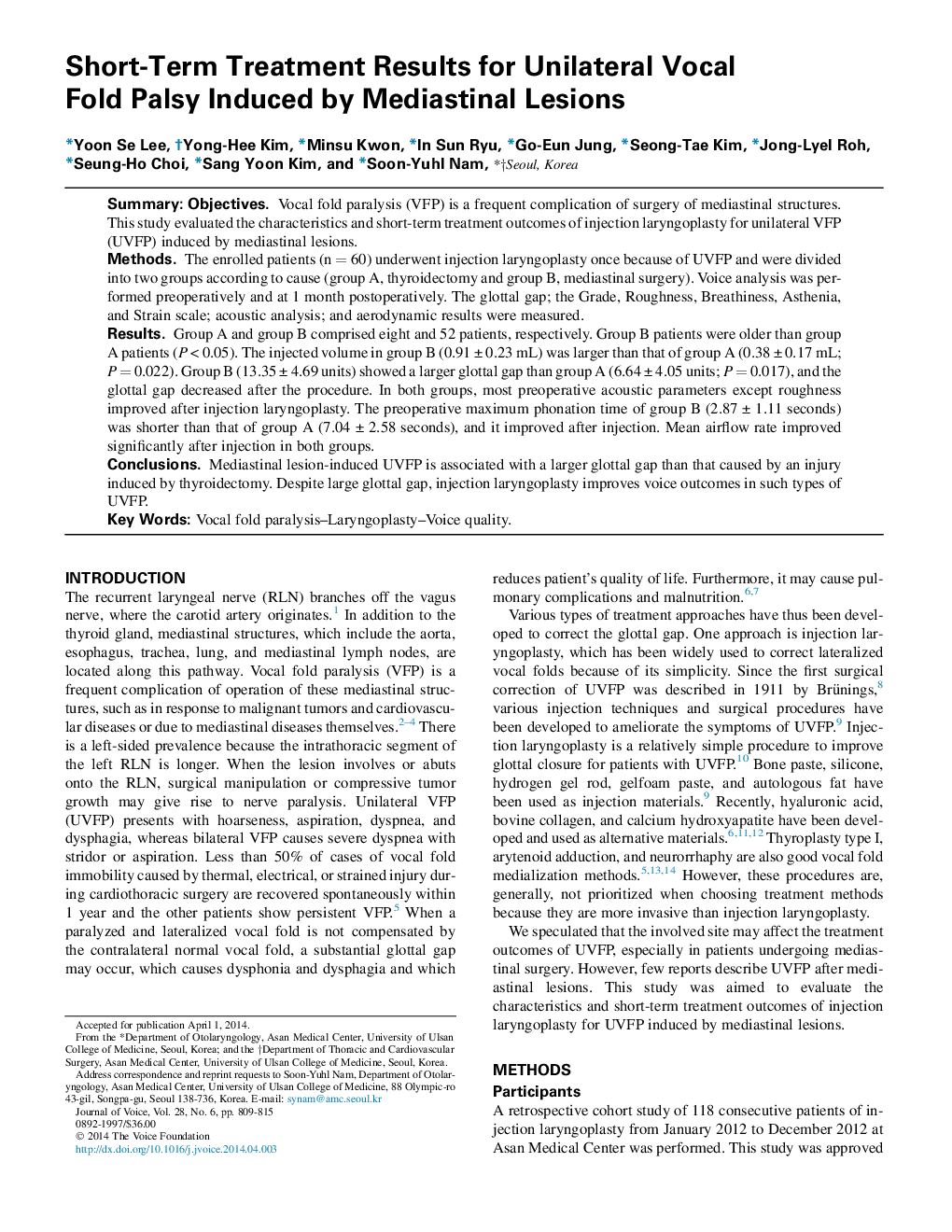| Article ID | Journal | Published Year | Pages | File Type |
|---|---|---|---|---|
| 1101621 | Journal of Voice | 2014 | 7 Pages |
SummaryObjectivesVocal fold paralysis (VFP) is a frequent complication of surgery of mediastinal structures. This study evaluated the characteristics and short-term treatment outcomes of injection laryngoplasty for unilateral VFP (UVFP) induced by mediastinal lesions.MethodsThe enrolled patients (n = 60) underwent injection laryngoplasty once because of UVFP and were divided into two groups according to cause (group A, thyroidectomy and group B, mediastinal surgery). Voice analysis was performed preoperatively and at 1 month postoperatively. The glottal gap; the Grade, Roughness, Breathiness, Asthenia, and Strain scale; acoustic analysis; and aerodynamic results were measured.ResultsGroup A and group B comprised eight and 52 patients, respectively. Group B patients were older than group A patients (P < 0.05). The injected volume in group B (0.91 ± 0.23 mL) was larger than that of group A (0.38 ± 0.17 mL; P = 0.022). Group B (13.35 ± 4.69 units) showed a larger glottal gap than group A (6.64 ± 4.05 units; P = 0.017), and the glottal gap decreased after the procedure. In both groups, most preoperative acoustic parameters except roughness improved after injection laryngoplasty. The preoperative maximum phonation time of group B (2.87 ± 1.11 seconds) was shorter than that of group A (7.04 ± 2.58 seconds), and it improved after injection. Mean airflow rate improved significantly after injection in both groups.ConclusionsMediastinal lesion-induced UVFP is associated with a larger glottal gap than that caused by an injury induced by thyroidectomy. Despite large glottal gap, injection laryngoplasty improves voice outcomes in such types of UVFP.
